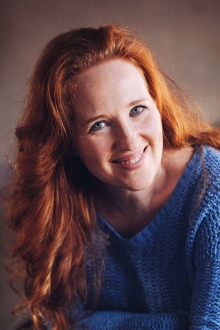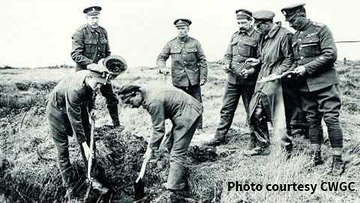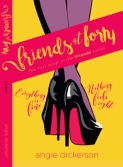
It has been my pleasure to feature Chris Tetreault-Blay on Linda’s Book Bag previously when he wrote about using NaNoWriMo as a stimulus to completing his first novel Acolyte. You can read that post here and buy Acolyte here.

Now Chris has a new novel, a sequel to Acolyte called The Sowing Season which was published yesterday 29th April, and as part of the launch celebrations he has agreed to be interviewed on the blog. The Sowing Season is available for purchase here.
The Sowing Season

March 1684
After witnessing her lover’s brutal ritualistic murder, Katrina Childs returns home a shell of her former self. Her only hope is of the child growing inside of her.
A mysterious old man appears in the village one night with a warning for her brother, Ewan: Protect Katrina and her child at all costs. Lucas Stamwell will return to claim them both.
March 2012
Jacob Crowe is living a simple life, surrounded by the tranquillity and protection that only Wildermoor can bring. Until the night that his wife is torn away from him by dark spirits, as he is stalked by a hooded phantom. Jacob is saved from The Reaper’s clutches by Truman Darke, who has returned to Wildermoor ten years after he was abducted by The Council of Eternal Light.
The Council’s plans for a new world enter the next terrifying phase as The Reaper grows his demon army, by setting his umbras free to claim souls to add to their ranks…and feast on those that are left. A process that He refers to as ‘The Sowing Season’.
DI Thomas Laing is forced to aid their case, having had to choose between his family and his future.
December 2012
As the planned apocalypse rapidly approaches, the Council’s own security is compromised by a rookie journalist interested in the whereabouts – and importance – of the mysterious Patient 29; a man said to be housed within the walls of St. Dymphna’s Research Facility.
To find the answers to save their future, they must all look to their past.
An Interview with Chris Tetreault-Blay

Hello Chris. Thank you so much for agreeing to answer some questions on my blog about your writing.
Firstly, please could you tell readers a little about yourself?
Certainly. I am first and foremost a husband and a father; my writing comes a close third. I live in Newton Abbot with my wife and twin children. I am originally from Basingstoke but I moved to Devon 11 years ago this year after graduating from Staffordshire University. I have a full-time job around which I plan my writing. My first novel ‘Acolyte’, the first part of my Wildermoor Apocalypse series, was published last summer by Bloodhound Books, and in January I took the plunge and released my first self-published effort, ‘House Of Courtenay’.
When did you first realise you were going to be a writer?
I think it actually took me until the moment that I first received an email back from my eventual-publishers saying that they were interested in ‘Acolyte’. Up until then, it had been more of an experiment. NaNoWriMo 2014 provided me with the platform and motivation to turn my ideas into a bigger story, but I still didn’t have any plans for the book once it was finished. It wasn’t until I had received a professional’s feedback that I seriously started thinking that I was good enough, to have written something which could potentially be released on the market. Believe it or not, even now there are times that I hesitate to call myself a writer.
If you hadn’t become an author, what would you have done instead as a creative outlet?
Given the chance (and maybe a little more talent) I would have probably travelled down the musical route. I am also a self-taught (bedroom) guitarist and a big heavy metal fan. Before deciding to try my hand at writing fiction, my earliest work consisted of lyrics just waiting for the music to fall behind them. Who knows, maybe one day they may still find the light of day.
The Sowing Season is the second in your Wildermoor Apocalypse trilogy after Acolyte. Why did you decide that you would write a trilogy rather than three stand-alone novels?
Because the story I was creating in my head kept growing and evolving, it naturally leant itself to being written over more than one book. I envisaged the complete story in three clear parts early on. I have always believed in the very simple method of creating stories that have a definable beginning, middle and end. Each part of The Wildermoor Apocalypse represents these three stages; ‘Acolyte’ introduced the characters and the threat of The Reaper and The Council , and their plans to bring about the end of civilisation as we know it, ‘The Sowing Season’ is the transitional part of the overall story, helping to move the story from the past (1680s – 2002) to the characters’ present (2012). The final part, ‘Rapture’, will focus mainly on the final days leading in to the planned apocalypse, as well as tying up loose ends from the very roots of the story by returning (in one way or another) to the past.
Your Wildermoor Apocalypse trilogy spans several centuries. How tricky did you find making it authentic and keeping a unity of authorial voice?
Very, it would seem. Before I decided that ‘Acolyte’ was going to be a full novel, I started writing a short story called ‘The Pit of Harper Falls’, based on a little local history surrounding a place in Newton Abbot which I am very fond of (‘Devil’s Pit’, Bradley Woods). From there, the religious undertones started to emerge and dominated the ideas behind the whole story, so I had to ensure that any historical, religious or scientific references were not only correct, but also had a rightful place within the story, not only at that certain point but within the trilogy as a whole. Trying to think ahead to how one certain event may be able to be explained near the end of Book Three, for example, was a major challenge. I think this will be my main obstacle when writing the final part, as I will have to ensure that it all still flows and fits to events that occurred three hundred years (or two books) earlier.
What drew you to horror as a genre and can you see yourself writing other kinds of fiction in the future?
Horror has always been a love of mine since the days of my early teenage-hood when I saw my very first horror film, which I believe may have been Halloween 5 (although by then I think I had also discovered the Critters series). It was only natural that the stories that grew within me would lean more towards this genre, I suppose. I would like to try something new at some point in the future, when I believe that I have written all the blood and gore that I feel compelled to. I am quietly working on a short story/novella which is more sci-fi than horror (and the first fiction that I started writing a few years ago), and would also like to put onto paper another idea I have for a Rocky-esque underdog-comes-good story. Once I left Wildermoor behind, we will see where my imagination takes me.
Do you ever scare yourself when you write?
I think in the sense of being frightened of a character or scene that you put on a page, especially within the horror genre, as a writer you tend to become immune to a lot of the things that may shock or scare the readers. What I will say is that at certain points so far, especially whilst writing ‘House Of Courtenay’, there have been moments that I have surprised myself as to how twisted my imagination can be.
Which aspects of your writing do you find easiest and most difficult?
I will definitely say that I find the beginning of a story the easiest time for me, letting my imagination just flow with no boundaries, and giving it time and space to lead me wherever it needs to go. On the flip side, trying to hone and tame the story for it to reach its climax is something I tend to struggle with. I am constantly thinking of new ideas of how to end scenes or even the entire story, when a new one will pop into my head and take me in another direction. Coupled with this, the editing process is my least favourite part. I struggle to want to let any of my story hit the cutting room floor and the more I read my manuscripts, the less confident I become about it (regardless of how great I thought it was to begin with).
What are your writing routines and where do you do most of your writing?
For my first three books, I tried to keep to the same kind of schedule, usually based on achieving a word count of around 1600-a-day. I tend to spend my commute to and from Exeter each day going over plot lines, improvements, endings etc. in my head, so by the time my writing stint rolls around the next day I already have an idea of what part of the story I am going to try and attack next. Most of my writing takes place in my car on my lunch breaks, though one day – success permitting – I hope to be able to acquire a more comfortable working space.
When you’re not writing, what do you like to read?
Naturally, I am a big horror fan and turn to anything by James Herbert as a form of escapism or even inspiration. I am also an admirer of Dean Koontz’s Odd Thomas series, of which I am currently reading the final instalment. The character of Odd actually inspired one of the central characters in The Sowing Season – Jacob Crowe – so I feel I owe a lot to Koontz for that. Sometimes, particularly if I am exploring new ideas for a story, I embark on reading historical texts, anything I can find to strengthen my knowledge of the time or place that I wish to write about.
Do you have other interests that give you ideas for writing?
Music in a massive form of inspiration to me and has been for years. When I was younger, I used to spend hours laying on my bed listening to music as stories – daydreams – formed in my mind, with the music providing a soundtrack to them. I guess I still do that now, although when the stories form I have learned to write them down.
Which of your characters would you most like to be and why?
I have two answers to this, if that’s okay. In terms of The Wildermoor apocalypse (‘Acolyte’ and ‘The Sowing Season’), when I first started writing them it was Truman Darke that really grabbed me. I was really proud of how he turned out in ‘Acolyte.’ But as I wrote ‘Season’ I developed more of an affinity with Thomas Laing. In the second book, you really learn more about Laing and get to see his human side – his struggle between wealth or power and his own family.
But if I had to pick a character to trade places with from everything I have written, one stands out way above the rest; Ackerley Patterson-Thorne, aka the ‘Trickerjack.’

For those who have not yet read ‘House Of Courtenay’, I will try not to spoil too much for you but to say that Trickerjack is suave and successful, but also manipulative and dangerous. I imagine that there are so many layers to him that I have not yet explored, but who wouldn’t want the power of immortality? Sounds like a winner to me.
If your books became a film, who would you choose to play Colin Dexler and why?
That’s actually a tough one as I have never really thought of the movie version of Dexler, maybe because the character was already loosely- based on an actual person that I used to see walk the streets in Exeter. A couple of the other characters have lived in my imagination as certain actors as I have been writing, but not Dexler.
If I had to choose, though, I would probably pick Robert Knepper (‘Theodore Bagwell’ from Prison Break). Knepper is an actor who can make you feel sorry for him and hate him all at the same time, and is a natural at playing characters who may have a screw loose. Both qualities are a must for Colin Dexler.
When can we expect the final part in Wildermoor Apocalypse trilogy?
I am planning to start work on it at some point before the end of this year, and hoping for a 2017 release. For this one, I am hoping to spend the summer researching for a few of the plot lines. I want ‘Rapture’ to be the most powerful, emotional and shocking of the trilogy so am going to take my time, not run to a tight deadline so much as I did on ‘Acolyte’ and ‘Season’ and give it as much attention as it deserves.
If you had 15 words to persuade a reader that a Chris Tetreault-Blay book should be their next read, what would you say?
“If you want something to challenge how you see the world, this may be it.”
Is there anything else you would have liked to be asked?
I don’t think so, thank you. I have very much enjoyed answering these questions. A great variety and some that really got my mind bending a bit 🙂
I’m pleased to hear it! Thank you so much for your time in answering my questions Chris.
Catch up with Chris on Twitter, Facebook and his website.
Find out more with these other bloggers:



































